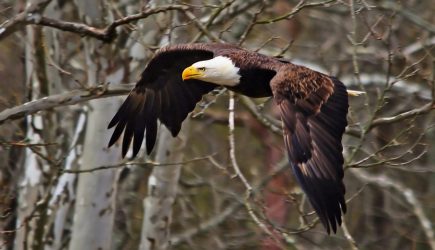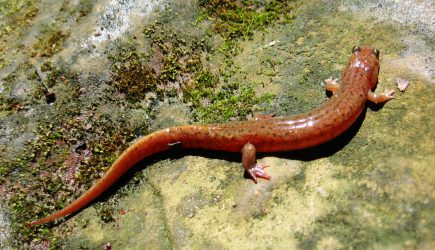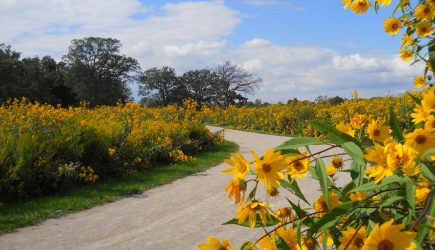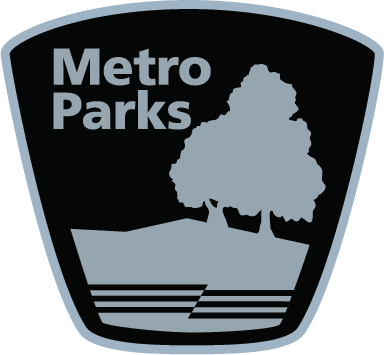Curriculum enhancing studies in nature
for groups of all ages
Our Free education programs are offered throughout the year for children with varying interests and ability levels. Programs are designed with student academic achievement and environmental responsibility in mind. Learn more about the variety of programs we offer in the descriptions below. If you are interested in scheduling a field trip or scheduling one of our programs at your location please click here for our contact & scheduling information.
Animal Programs
Animals are a great way to captivate children’s attention and imagination as well as teach science concepts. Learn about Ohio wildlife through hands-on activities including seeing some animals up close.

Animal Tracks & Signs
Look for clues along the trail and find out what animals live in the park by identifying tracks, scat, sounds and other tell-tale signs of animal life.
Bats
Explore the unique characteristics of these flying mammals. A short walk to look at bat homes may be included.
Birds
Become a birdwatcher by learning about bird identification, migration, behavior and more. Then search the forest and fields for a variety of birds. Binoculars and field guides are helpful.
Birds of Prey or Owls of Ohio
Learn about Ohio birds of prey and their importance in our ecosystem with special emphasis on the adaptation of beaks, feet and feathers. A short walk is included. Binoculars are helpful.
Bison
Walk to the Battelle Darby Creek Metro Park bison pasture to learn about one of our largest mammals and discover their role in the ecosystem.
Fishing
Cast for bluegill, bass or catfish from the docks and pond edge. Learn about fishing equipment, technique and safety. Please limit groups to 20 or less, with at least three adult helpers.
Insects & Butterflies
Catch (and release) insects with nets and jars while studying their unique structure, identifying features and adaptations. Please wear long pants to walk through fields.
Mammals
Identify skins and skulls of several common Ohio mammals. A short walk to find mammals in the wild is included.
Ohio Animals/Wildlife/Adaptations
Learn about the abundant wildlife found in our backyard and Metro Parks through an interactive presentation including animals furs, models, skulls and maybe a live animal.
Reptiles & Amphibians
Discuss the life cycle of reptiles and amphibians as well as their survival needs. Meet a few of the park’s education animals. Possibly take a walk to explore the habitats of amphibians and reptiles.
Waterfowl
Look high and low to identify common wetland birds such as ducks, geese and herons. Find out why wetlands are so important to these birds. Binoculars and field guides are helpful.
White-tailed Deer
Learn about Metro Parks’ deer dilemma on a walk in search of deer. Discuss how the overpopulation of deer affected the forest and its inhabitants and how Metro Parks worked to solve the problems.
Plant Programs
Each Metro Park has a wide variety of trees and plants that naturalists use to teach students. Naturalists can customize topics based on classroom learning.
Science of Plants
Learn what plants need to grow, plant a seed and discuss the ecology of a forest or field habitat.
Trees
Discover what makes trees special. Learn leaf shapes and/or the 3 B’s – buds, bark and branches – to identify several species, depending on the season. Activities may include meeting a tree, learning tree identification, fall color variations and forest ecology basics.
Wildflowers
Look for some of the season’s prettiest blooms on a walk. Learn identification, folklore, and edible and medicinal uses of these flowers.
Nature, Ecology & Earth Science
Engage in outdoor field studies by taking advantage of the many unique features in Metro Parks. These hands-on activities inspire science learning for students.

Creek Study
Wade into the creek with nets and jars to catch (and release) aquatic insects and fish. Discover what these aquatic insects tell us about the stream and water quality. Please wear closed-toed shoes and clothes that can get wet.
Discovery Hike/Seasonal Change
Use your senses on a walk through forests and fields to learn about forest creatures, the importance of plants and the many habitats in our Metro Parks. Program topics will vary depending on the season and participant focus.
Landforms (Erosion, Glaciation and Weathering)
Find out about the geology of the park while hiking. Discuss rock formation in central Ohio and the changing landscape in our parks.
Nature in Winter
Using animal furs, learn how wildlife survives the cold Ohio winters.
Ohio Habitats/Ecosystems
Explore fields, forests and wetlands to compare and contrast the ecosystems in Ohio.
Pond/Wetland Study
Get your hands in a wetland to take water samples, catch aquatic insects, identify plants, look for birds and more. This hands-on program discusses the importance of the food chain and a balanced ecosystem. Please be prepared to get wet and muddy.
Soil & Leaf Litter
Take a closer look for the decomposers and insects that recycle the leaves on the forest floor into quality soil.
Vernal Pools/Swamp Life
Dip a net, pan or jar into the vernal pool and/or swamp to find out what lives below the water’s surface. Please wear clothes that can get wet or a little dirty.
Cultural History
Bring to life the culture and history of Metro Parks through these educational programs.
Farm Life, Guided
A 2-hour presentation that includes a visit to the farmhouse, summer kitchen and barn. Discuss work and recreation, food production and preservation, and uses of crops and animals. Costumed guides adapt presentation to fit student age.
Farm Life, Self-guided
Group chaperones lead students at their own pace on a self-guided tour. Costumed staff are available to answer questions and demonstrate aspects of farm life. Map and question sheets provide chaperones with information to discover how farm families lived.
Hands-on History
Participate in hands-on activities that may include baking on a wood burning cook stove, learning about draft horses, playing parlor games, using 19th-century toys and discovering the uses of farm equipment.
Prehistoric People
Take a hike to discuss how people lived before European settlers arrived. Look at burial mounds and artifacts from the past.
Special Interest Programs
Teach conservation topics and enhance student learning through recreation in the parks.
Archery
Learn to shoot a compound bow. Ages 8 and older.
Conservation
Find ways you can help preserve and protect our wild resources.
Geocaching
Learn how to use a GPS unit to search for caches hidden in the park.
Natural Play Area
Go off trail into our natural play areas to explore the forest through games and activities.
Outdoor Recreation
Metro Parks Outdoor Adventure team offers recreation opportunities such as paddling and climbing.
Tram Programs
From April through October, groups may schedule a program on a Metro Parks tram. Participants will travel through a park with a naturalist and learn about the park’s natural and cultural features. For tram locations and availability please call the naturalist at the park where you’d like to schedule your program. The naturalist will have a list of available dates and times.

